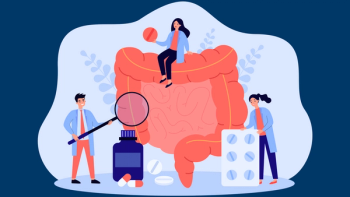
- September 2024
- Volume 18
- Issue 4
Understanding the Role of an Oncology Research Nurse
An oncology research nurse balances patient care with rigorous data collection, emphasizing communication and collaboration to advance cancer research.
Oncology research nurses play an integral role in collecting data and assessing for adverse events throughout a clinical trial, which, in turn, can lead to their support in the development of new cancer therapies.
Oncology Nursing News spoke with Amanda Woolery, BSN, RN, supervisor of the Center for Innovative Cancer Therapy program at Ochsner Health in Louisiana, to learn more about her role as an oncology research nurse supervisor, how she works with other members of the care team, and the challenges she faces.
What is the primary focus of an oncology research nurse?
The primary focus is to collect the data throughout the clinical trial. So we’ll collect blood, administer medication, and review lab work. We use critical thinking as nurses to assess any adverse events that the patient may have with the treatment or any toxicities that they’re having that can affect them.
How does an oncology research nurse differ from a traditional nurse?
Traditional oncology nurses care for these oncology patients by administering FDA-approved therapies, managing the symptoms, and providing nursing care for the oncology patient. The big difference is that research nurses are collecting that data that will hopefully lead to new FDA-approved treatments.
Can you describe a typical day in your role? What are some of the key responsibilities and tasks that are involved?
Before I began my new supervisor role, a typical day was always screening patients for trials. So if we had a patient who was getting treatment that day, I’d go with the patient to see the doctor or the NP [nurse practitioner] on that trial. We’d go over any new medications that the patient may be on, any [adverse] effects that they may be experiencing, and then the doctor and I would sign the orders.
From there, I’d bring the patient to the infusion center. And then usually there is a task list that I would prepare for the infusion nurse of protocol-specific things that may need to be done, whether it’s labs that have to be drawn at certain times, or vital signs that have to be done at a certain time. Then that sheet would go to the infusion nurse for them to be able to get those things done at the appropriate time. And from there, while that patient is in infusion, whatever I have to get ready for the next day, I’ll start prepping for...[the] patients that I have the next day.
How do you balance the demands of patient care with research protocols?
The big key in research is being prepared and following that study protocol to a T. This is something that I did before I became a supervisor, and I teach all my team members the same way. For any new study that [is] coming up, always prepare ahead, get your cheat sheets ready, get your checklists, and have all that ready, so when you have that first patient, you’re ready to roll. And every patient after that, it’s replicated. And that’s the key to balancing it, to be thoroughly prepared.
How do you communicate complex medical information about clinical trials to patients and their families? What challenges do you encounter when doing so?
Here at Ochsner, we do a good job educating our patients. Our oncologists and NPs are highly, highly involved from the start. They’ll present the trial to the patient, explain the medications involved, and then we’re involved in that aspect too. During that visit, we’re there.
We always use basic terminology that everyone understands. Cancer doesn’t discriminate. So anybody can get cancer, you don’t have to be in the medical field. Our consents are written in a way where anybody can read and understand them.... You just don’t know who’s going to walk in the door, somebody who maybe hasn’t graduated high school, maybe only has some [college coursework]. You even have some medical people who come in who are diagnosed with cancer, but, maybe, their whole career, they were an anesthesiologist or a podiatrist, and they lack that oncology background. We utilize ChemoCare.com, which is very patient friendly. The sponsor will give us pamphlets sometimes, and then we make sure [patients] understand every single thing before they even sign the consent. We’ll email it to them beforehand, if they want us to do that. That way, they can come in with their questions. They can also take it home, if they want to have other family members look at it. And then we’ll set them up to come back with the consent at that time. Throughout the whole process, we’re constantly teaching them; we’re constantly educating them.
What is your role in data collection and management for research studies?
Everything that we do, the tasks that we perform, is set forth by every trial, by every protocol. So they’re going to dictate what we have to do, whether it’s labs, EKGs [electrocardiograms], quality-of-life questionnaires, [or] reconciling oral medications with pill counting or a pill diary. We follow the latest version of the protocol to ensure accuracy. With the infusion, we do the cheat sheet, and then anytime there’s something that we may question, we’ll email the sponsor to understand, to clarify whatever question we may have. And we’ll also have proof of that. We’ll keep that documentation, whether we save it in a personnel file or print it out. That way, if something comes up later in the life of the study—and we’ve had that happen—2 years later that question [comes up], and we’re like, wait a second, we clarified this. We emailed you. This is a clarification. And then that way, we have that proof there of whatever clarification that we need.
Does a research nurse typically work on 1 trial or several trials at a time?
We work on several trials [simultaneously]. When I first started in oncology research [at Ochsner]—there is a little back- story with that—we were just research. Then I started here, and they were starting to grow and wanted to form the early-phase section. So I was hired for that. We started opening some trials. And then we kind of did a split. So you have your late-phase group and your early-phase group.... In the early-phase group, how it was originally, I was in charge of breast, lung, melanoma, and did some BMT [bone marrow transplant] studies. A lot of the studies in the early phase are what we call basket trials. So you can have breast, lung, melanoma, colorectal, and pancreatic, all in one.
We changed that last year, right before I became supervisor, to where everybody owns so many specific trials. So in our program, we have research nurses, and we have research coordinators. The nurses will get more of the complicated trials where the patients may get admitted with ICANS [immune effector cell–associated neurotoxicity syndrome], infusion-related reactions, things like that, which require more of the nurse. I think right now, each of my employees has 4 or 5 trials that they’re lead on. But everybody is backup on everything in case somebody leaves, somebody goes on vacation, etc.
How do you collaborate with other health care professionals such as oncologists, pharmacists, and data managers to ensure the success of research projects?
From the beginning, whoever is going to be involved in this study is going to be involved from the start. No medications are prescribed or administered to a patient until we talk to that doctor or the [NP]. The oncologists are very, very involved from the time of consent. When we’re finding these patients, they know about it, we’re talking with them. One thing I hear when I’m on calls with studies with other sites [is that] the oncologist may not physically be there. Ours are physically here with us...they’re right down the hall from us, we talk to them every day. So they’re highly involved. We communicate a lot through emails and messages within the Epic system. We put sticky notes on their desk, things like that.
Pharmacists, too, they’re also in it from the start, they’re aware of when an appointment is via Outlook appointments that we create with each visit. Everyone who is involved with the appointment is going to be on that Outlook invite. So [between] the pharmacists, the lab techs, the data coordinator, [and] any backup research coordinator, we cover all of our bases, and everybody knows what’s going on all the time. Communication is definitely key.
What opportunities for professional development are available to oncology research nurses?
We recently partially partnered about a year ago with MD Anderson [Cancer Center]. So through that partnership, there are numerous trainings and classes that they offer online. The coordinators are also able to attend local oncology conferences. Ochsner hosts an annual one, as well as a conference called the Cancer Advocacy Group of Louisiana Conference. They help write laws that help Louisiana cancer patients.
This year, we were able to send 2 of our coordinators to the ASCO [American Society of Clinical Oncology] Annual Meeting. Their response from that was that they learned so much. The plan is to send research coordinators every year. Also, there are the educational dinners that are [hosted by] the pharmaceutical representatives, and things like that.
So there is a lot that they’re able to do for education. Plus, our doctors are really good at educating. Any time [our oncology research nurses] have questions about something, they just go to them, and they’ll answer whatever it may be, whether it’s about a certain type of cancer or a certain protocol or drug or drug regimen... and they’ll easily answer any questions that they have.
Are there any other resources or ways that oncology research nurses can stay updated on the latest research and advancements in oncology?
A lot of it is self-motivated. There is NOON, the New Orleans Oncology Nurse Society, as part of ONS [Oncology Nursing Society]. It’s the New Orleans chapter. People will have a membership for that and can go to the dinners, also. [And]... some of the nurses are getting their research certification, so there are classes for that, which they can take here.
What are the most significant challenges you face as an oncology research nurse?
The most significant challenge is when a patient doesn’t qualify for a study. So you have to separate that nurse and that research part of you. And that was definitely hard for me in the beginning. The nurse part of me wants that patient to go on study. So let’s put them on. But the researcher part of you [says,] you can’t. If the protocol says that they can’t go on trial because [of] XYZ, their albumin is 2.5 and it has to be 3, you can’t just put them on trial, as much as you want to. It goes against the study protocol, [and] the FDA, [and] it can cause an audit on the site. It can be really damaging if we go against what the protocol says because it can damage the results of the study. It’s hard sometimes to separate that nurse from the researcher, but we would never compromise our research.
What are the most rewarding aspects of your job? Can you share a specific example of a positive impact you’ve made on a patient’s life?
I will say, hands down, [it] is when a patient gets a scan result and it shows that their cancer is responding to the treatment. For instance, a patient [of mine], and this was when I worked in infusion before I came to research...was on a research study. And, inadvertently, maybe that’s why I went the research route, because of this patient. He came for his treatment, he was a stage IV colorectal patient, wasn’t very talkative, really turned off, really just [kept] to himself. But that quickly changed. So I was my normal self to every single patient, my chipper self, and he and I developed a bond. And [I bonded with] his wife, too— they became like a second set of parents to me. So he ended up—this was back in 2012—in complete remission since. He was on a clinical trial, [and] they were able to get [the disease] down to where he just had a couple of spots in his liver. They did surgery, took those few spots out, and he’s been in remission ever since.
Transcript has been edited for clarity and conciseness.
This is sponsored content.
Articles in this issue
over 1 year ago
Complex Multidisciplinary Care of an AYA With Ewing Sarcomaover 1 year ago
The Changing Landscape of Clinical Trials in Cancer CareNewsletter
Knowledge is power. Don’t miss the most recent breakthroughs in cancer care.






























































































